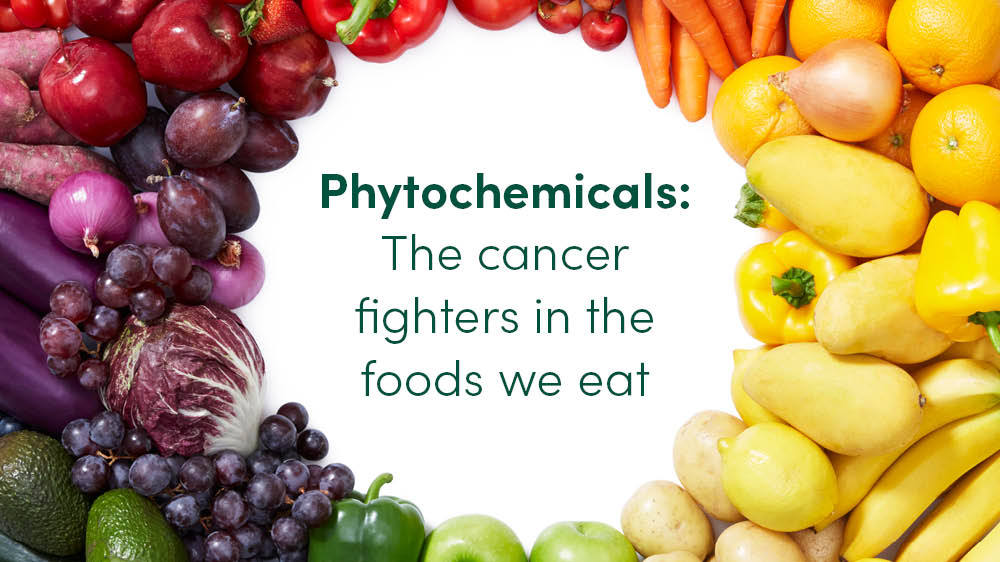Did you know the same chemicals that give plants their color, odor and flavor could also reduce your risk of cancer if you eat more plants in your diet?
Phytochemicals, the naturally occurring chemicals in plants, also can influence your body’s chemical processes in helpful ways. Eating more fruits and vegetables can:
- Stimulate the immune system
- Reduce the type of inflammation that increases cancer growth
- Block substances you eat, drink and breathe from becoming carcinogens
- Slow the growth of cancer cells
- Help regulate hormones
A guide to phytochemicals
Thousands of phytochemicals have been identified so far, and scientists have only begun to investigate their promise. Here are some of the phytochemicals attracting serious scientific attention and their cancer-fighting potential:
Carotenoids
Carotenoids, such as beta-carotene, lycopene, lutein and zeaxanthin, may inhibit cancer cell growth, work as antioxidants and improve immune response. Carotenoids are often found in red, orange and green fruits and vegetables including:
- broccoli
- carrots
- leafy greens
- sweet potatoes
- winter squash
- apricots
- cantaloupe
- oranges
- watermelon
Flavonoids
Certain flavonoids found in apples, citrus fruits, onions, soybeans, soy products, coffee and tea may inhibit inflammation and tumor growth. They may also boost immunity and production of detoxifying enzymes.
Indoles and Glucosinolates
Cruciferous vegetables like broccoli, cabbage, collard greens, kale and Brussel sprouts contain indoles and glucosinolates. These phytochemicals may help detoxify carcinogens in the body and limit the production of cancer-related hormones. They may also block carcinogens and prevent tumor growth.
Inositol and Isoflavones
A type of inositol found in soybeans, other soy products (tofu, soy milk and edamame) and bran from corn, oats, rice, rye and wheat may retard cell growth and work as an antioxidant. Soybeans and other soy products also contain isoflavones, which have been shown to inhibit tumor growth, limit the production of cancer-related hormones and work as an antioxidant.
Isothiocyanates
Eating cruciferous vegetables, which contain isothiocyanates, could help detoxify carcinogens in your body, block tumor growth and work as an antioxidant.
Polyphenols
Polyphenols may prevent cancer formation, prevent inflammation and work as an antioxidant. You can find these in green tea, grapes, wine, berries, citrus fruits, apples whole grains and peanuts.
By prioritizing foods with phytochemicals in your diet, you could reduce your risk of cancer.

